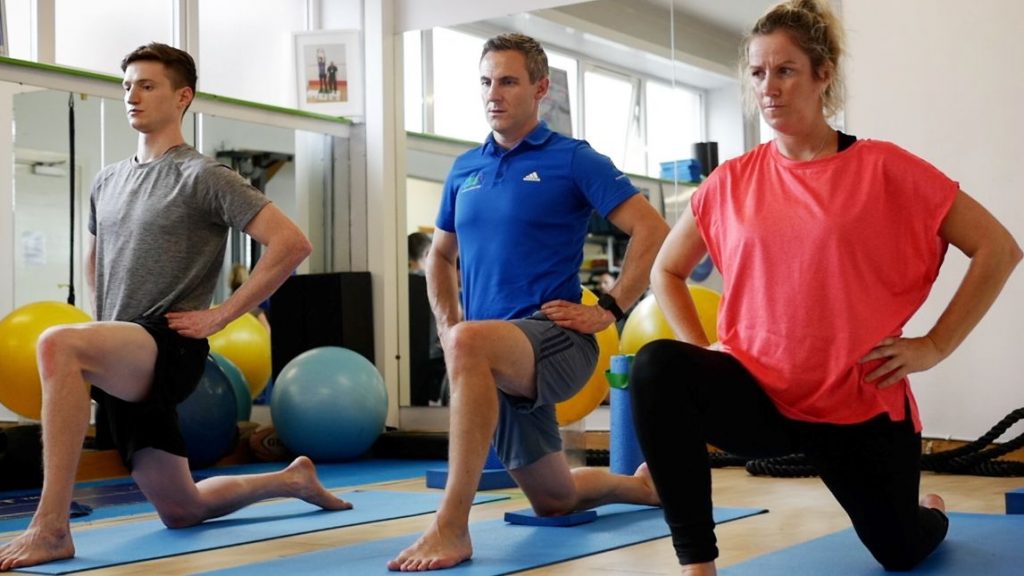Build the engine slowly, surely and avoid overload
Without doubt, one of the major drivers of injury we see in the clinic is overload from training spikes and subsequent injury which follows this. Regardless of your running distance, it’s important to gradually increase your mileage and intensity to allow your body to adapt and avoid overuse injuries.

One of the most crucial aspects of any training program is gradual progression.. Aim to increase your weekly mileage by no more than 10% to minimize the risk of injury.
If you are more conditioned and up to a level of running half and full marathons, you may be doing 2 short runs and a longer run x 1 time per week. We still recommend a minimum of 48 hours until your next shorter run.
This is to ensure that your body is given enough time to fully adapt from the more strenuous longer run. This process can take up to 72 hours so if you were to run within the 24 – 48 hour, it would be recommended doing a fairly short and light run so as to avoid overload.
Remember that progress takes time. Stay consistent with your training, gradually increase your mileage, and be patient with your results. Rome wasn’t built in a day, and the same goes for your running performance. Trust the process, stay motivated, and celebrate your achievements along the way.
Introduce some strength and conditioning into your routine
Research has shown that introducing some strength and conditioning into your weekly routine can reduce running injuries.
This can be up to a 50% reduction in overuse injuries.
It has been shown that it can have a positive effect on running efficiency by up to 8% also.
We would generally recommend getting your conditioning done x 1 – 2 times per week. Include strength training exercises in your routine to improve muscular endurance and prevent imbalances. Focus on exercises that target your lower body, such as squats, lunges, and calf raises, to develop strength and stability.
Additionally, incorporate core exercises like planks and bridges to enhance your overall stability and running form.
Proper Warm-up and Cool-down:

Before every run, make sure to perform a dynamic warm-up routine to prepare your muscles for the upcoming activity.
Incorporate exercises such as leg swings, lunges, and high knees to activate your muscles and increase blood flow.
After your run, dedicate time to a proper cool-down, including static stretches and foam rolling to reduce muscle soreness and enhance recovery.
Optimise recovery
Allowing your body ample time to recover is crucial for injury prevention and performance improvement.
Incorporate rest days into your training schedule and listen to your body.
Adequate sleep, proper nutrition, and active recovery techniques like massage or foam rolling are all essential components of an effective recovery plan.
Light exercise like walking or cycling the next day for 20 – 30 minutes after a long run, will actually help with recovery by increasing lactic acid removal rates (by up to 25%).
Cross-Training
Engaging in cross-training activities, such as swimming, cycling, or yoga, can provide numerous benefits to runners.
Cross-training helps to strengthen different muscle groups, prevent overuse injuries, and maintain cardiovascular fitness.
Incorporate at least one or two cross-training sessions into your weekly schedule.
At APC for example, our Movement Revolution Classes are very popular with runners.

Get injuries addressed early!
To prevent common and sometimes long term running injuries, such as shin splints, achilles tendonopathy or IT band syndrome, you must pay attention to your body’s warning signs.
Address any pain or discomfort early on and consider physiotherapy if pain is persisting.
Here at APC can provide you with a specific plan based on your needs and goals. This plan will combine targeted exercises, soft tissue work and step by step running plan to help you get back to achieving your running goals and prevent further issues.
Conclusion:
As a runner, your journey from a 5K to a marathon requires dedication, perseverance, and proper care.
By following these physiotherapy-backed tips, you can enhance your performance, prevent injuries, and make the most of your running experience.
Remember to always prioritize your health and listen to your body. Happy running!